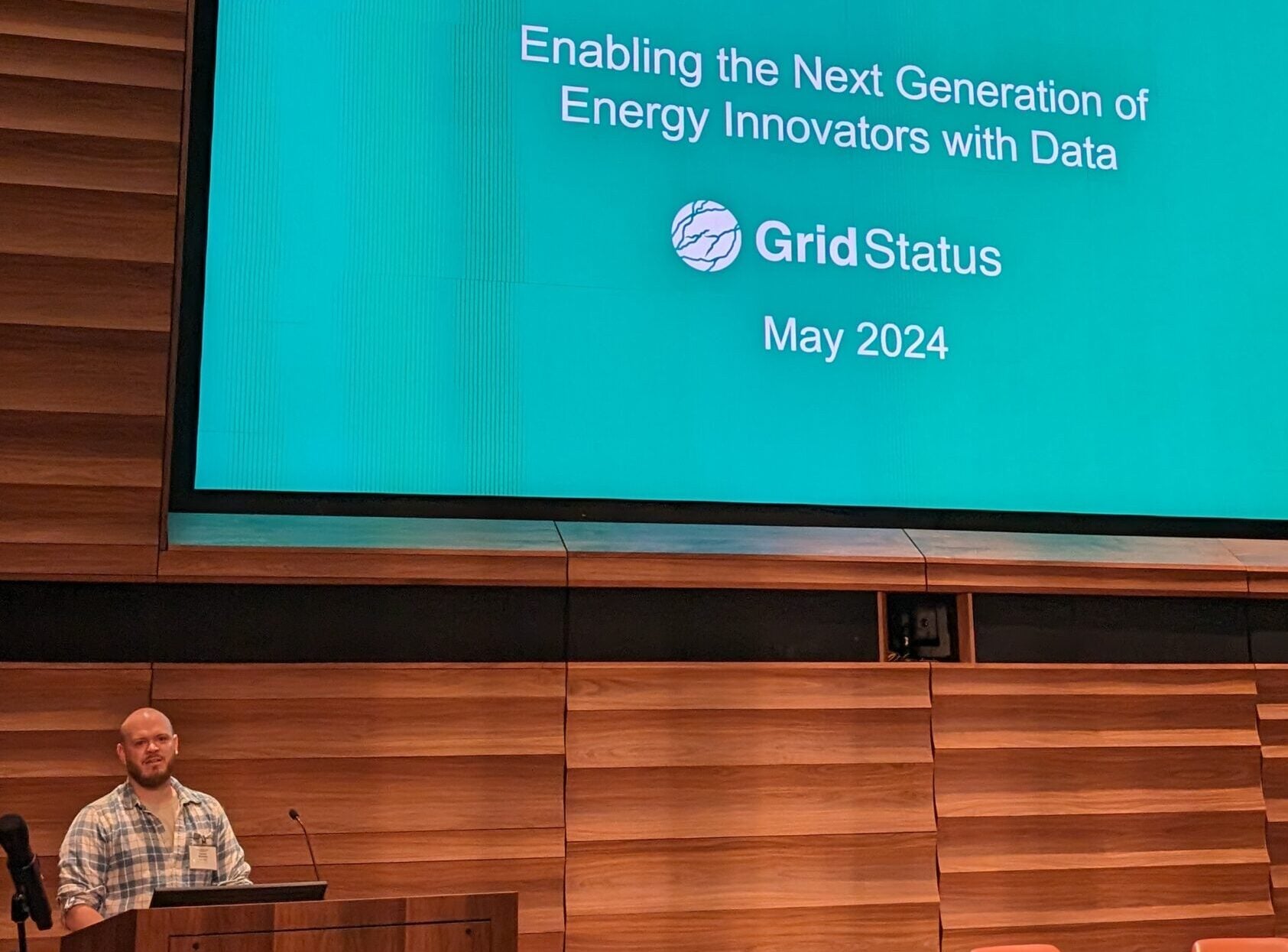Open Sustainability Policy Summit Recap and Video: Enabling the Next Generation of Energy Innovators with Data at Grid Status
At the Open Sustainability Policy Summit 2024, Connor Waldoch, the Head of Product and Founder at Grid Status, delivered a presentation on the critical role of accessible energy data in fostering innovation within the energy sector (video follows below). Here are the key takeaways from his session:
1. Challenges of Accessing Public Energy Data
Waldoch began by highlighting the paradox of energy data being both public and challenging to obtain. While market data and grid information are theoretically accessible, the practical difficulties in acquiring and utilizing this data pose significant barriers for startups and smaller entities. This reality underscores the need for better data centralization and usability.
2. Historical Context and Market Dynamics
Waldoch provided a historical overview of the energy markets, explaining how deregulation and market evolution have created complex data landscapes. He noted that real-time price spikes, although significant, often present a distorted view of market dynamics. Understanding the difference between real-time and day-ahead prices is crucial for accurate market analysis and decision-making.
3. The Role of Grid Status in Data Accessibility
Grid Status aims to bridge the gap between the availability of data and its practical application. By maintaining numerous data scrapers and providing consolidated information, Grid Status offers a vital resource for both individual users and enterprises. This approach democratizes access to crucial energy data, supporting a wide range of use cases from policy evaluation to operational decision-making.
4. Technical and Collaborative Challenges
Waldoch discussed the technical challenges involved in energy data management, such as integrating different data formats and dealing with time series data complications like daylight saving adjustments. He emphasized the importance of collaboration between data engineering professionals and those with energy market expertise to create effective solutions.
5. Future Directions and Opportunities
Looking ahead, Waldoch expressed a desire to make energy data even more accessible and useful. He mentioned the potential for developing new tools and features, such as an Excel add-on, to cater to a broader audience, including government agencies and policy makers. The ultimate goal is to enable stakeholders at all levels to understand and utilize energy data effectively, thereby driving innovation and informed decision-making in the energy sector.
